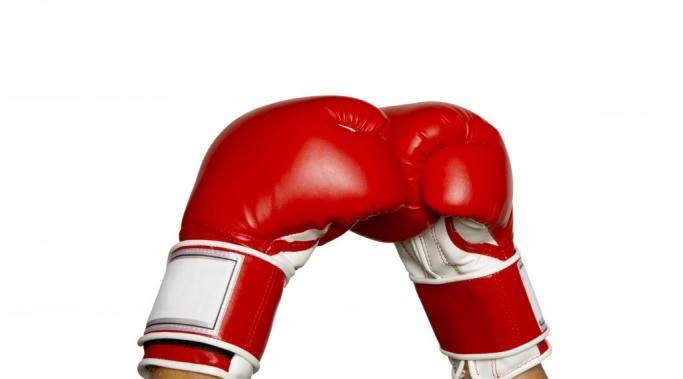Sometimes, probably due to my particular experiences online, I think that people will never understand mental illness. There are people who think that mental illness isn’t real; there are people that think that medication is poison; there are people that think mental illness is “all in our heads’” there are people that think that those with mental illness just have to “pull themselves up by their bootstraps.” In short, sometimes it feels like there are so many uncompassionate, ignorant, hateful people that all the writing in the world won’t make a difference.
But the thing is, my experiences aren’t necessarily indicative of the real world. And yesterday’s brunch proved that to me.
Impact of Bipolar
Recently, one of my search referral logs revealed the question, “Can I Become a Doctor if I Have Attempted Suicide?” This is a very specific question and I’m afraid I don’t have the technical answer to it on my site.
But the question itself saddened me. Mostly because someone would think that they couldn’t become a doctor just because of a suicide attempt. A suicide attempt should neither limit how people see you nor how you see yourself.
“I hate wait.” – Inigo Montoya, The Princess Bride
I hate waiting rooms. I know this hardly makes me unique, but I suspect my hatred is more pronounced due to the amount of time I spend in them. Stale magazines. Old furniture. “Art.” Institutional beige walls.
Ick, ick, ick.
I have had chronically on-time doctors and chronically late doctors but no matter what, somehow, in a waiting room, it feels like your life is wasting away.
People with a first-degree relative (say, a mother or father) with bipolar I have a seven times greater chance of having bipolar disorder themselves. Offspring of a parent with bipolar disorder have a 50% chance of having another major psychiatric disorder.
And if both your parents have bipolar disorder or another major mental illness? Well, I have no idea how that works out by the numbers.
In short, if you’re bipolar and having kids, there’s a very good chance that your children will have a mental illness too.
So the question is this, if you know that your child will have a mental illness, should you be having children in the first place?
As you might have heard, last week it was revealed that Jesse Jackson Jr., an Illinois congressman, is in treatment for bipolar disorder. Jackson Jr. has been on medical leave since June 10th and has been diagnosed with bipolar II.
As Candice Crawford, CEO and president of the Mental Health Association of Central Florida in Orlando, says, “People with bipolar II can lead perfectly normal lives.”
I agree completely, but the question is, can they be elected to public office?
It is a sad reality that life is full of things we don’t want to do and mentally-different or no, this is something with which we have to deal.
And it’s even sadder to know that people with bipolar disorder and other mental illnesses have a much longer list of things they don’t want to do than the average person. And, of course, ironically, the mentally ill are typically the least-equipped to deal with such things.
But beating bipolar disorder, or any mental illness, means doing what you don’t want to do, pretty much all the time.
Have you ever noticed that when you spend time around someone who’s in a great mood it often lifts your mood up too? Similarly, if you spend time with someone who is really down, you feel less happy? Part of the reason for this is mirroring. It’s the concept that we image back what people show to us. Human see, human do.
So how can we use this idea to our advantage when we’re depressed?
Recently suicide threats are on my mind as I had to deal with a very serious one last week on Facebook. There are two things that shock me about suicide threats online:
People usually ignore them.
Some (depraved) people actually egg the suicidal person on.
Now, I won’t go on about how deplorable it is to egg on another person’s suicidal ideation or threat, but I do want to discuss why people ignore suicide threats.
Self-esteem is a funny thing. I think we’re all born with it but somewhere along the way it gets damaged for many of us. Self-esteem is simply: “a realistic respect for or favorable impression of oneself; self-respect.” And yet many of us feel pretty much the opposite. We feel an unreasonable disrespect or unfavorable impression of ourselves.
And mental illness may be one reason why.
Recently a commenter talked about how she felt taken advantage of by a loved one who had schizoaffective disorder. This particular individual seemed to take a lot from his family and gave nothing in return. He refused to shower, help out around the house, pay for anything and would eat out at restaurants with no money and then insist his family come down to the restaurant and pay for him.
The person with schizoaffective disorder was being medically treated and the loved one felt that he was just manipulating the people around him.
Now, I can’t say what the motivation was in this scenario, but certainly, this commenter is not the only one to have found herself in that situation. So the question is, is mental illness an excuse for bad behaviour?
![MP900387256[1]](/sites/default/files/styles/blog_listing/public/uploads/2012/09/MP9003872561.jpg?itok=g3_xsZTm)

![MP900390462[1]](/sites/default/files/styles/blog_listing/public/uploads/2012/08/MP9003904621.jpg?itok=HZscWK6h)





